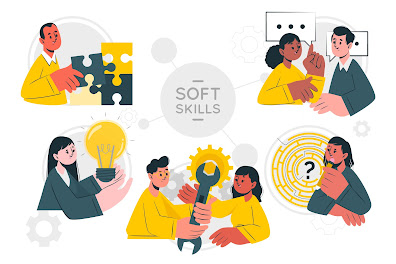Inclusive Assessment Strategies for Non-Traditional Learners in Vocational Settings
Introduction
In the dynamic landscape of vocational education, the term "non-traditional learners" has gained prominence, encompassing individuals with diverse backgrounds, experiences, and learning pathways. Assessing the skills and competencies of these learners presents both unique challenges and exciting opportunities. This blog delves into the distinctive aspects of assessing non-traditional learners in vocational settings, exploring inclusive assessment strategies and their relevance to the Level 3 Certificate in Assessing Vocational Achievement.
Understanding Non-Traditional Learners
Non-traditional learners in vocational settings can include individuals from various demographics, such as adult learners returning to education, individuals with different cultural backgrounds, and those with varying levels of prior work experience. Each learner brings a unique set of skills, perspectives, and learning styles, making the assessment process more intricate yet profoundly rewarding.
Challenges in Assessing Non-Traditional Learners
1. Diverse Learning Pathways:
Non-traditional learners often follow diverse learning pathways, acquiring skills through work experience, self-directed learning, or alternative education routes. Traditional assessment methods may not fully capture the breadth of their knowledge and capabilities.
2. Varying Educational Backgrounds:
Non-traditional learners may have diverse educational backgrounds, ranging from minimal formal education to advanced degrees. Assessors must consider these differences to ensure fair evaluations that recognize the relevance of prior learning.
3. Cultural Sensitivity:
Cultural diversity among non-traditional learners requires assessors to approach assessments with cultural sensitivity. Traditional assessment methods might not align with the cultural contexts of all learners, necessitating a more inclusive approach.
4. Recognition of Prior Learning (RPL):
Assessing prior learning is a crucial aspect of evaluating non-traditional learners. Challenges arise in determining the equivalence and relevance of skills gained through informal or experiential learning, requiring careful consideration in the assessment process.
Opportunities in Assessing Non-Traditional Learners
1. Tap into Diverse Skill Sets:
Non-traditional learners often possess a rich tapestry of skills acquired through real-world experiences. Assessors can leverage these unique skill sets to provide a holistic evaluation that goes beyond textbook knowledge.
2. Foster a Supportive Learning Environment:
Inclusive assessment strategies create a supportive learning environment, encouraging non-traditional learners to actively engage in the assessment process. This supportive atmosphere fosters a positive mindset and enhances the overall learning experience.
3. Promote Lifelong Learning:
Assessing non-traditional learners provides an opportunity to instil the value of lifelong learning. By recognizing and crediting prior learning experiences, assessors contribute to a culture that values continuous skill development and adaptation.
4. Enhance Cultural Competence:
Assessors can develop cultural competence by understanding and appreciating the diverse backgrounds of non-traditional learners. This not only enriches the assessment process but also contributes to a more inclusive educational environment.
Inclusive Assessment Strategies
1. Portfolio Assessment:
Allow non-traditional learners to showcase their skills and experiences through portfolio assessments. This method enables individuals to present evidence of their achievements, providing a comprehensive view of their capabilities.
2. Flexible Assessment Methods:
Offer a variety of assessment methods, including practical demonstrations, oral presentations, and written assessments. This flexibility accommodates diverse learning styles and allows learners to choose methods that align with their strengths.
3. Collaborative Assessments:
Encourage collaborative assessments where learners work together on projects or tasks. This approach not only reflects real-world working scenarios but also allows individuals to draw upon each other's strengths and experiences.
4. Personalized Learning Plans:
Develop personalized learning plans that consider the individual learning pathways of non-traditional learners. Tailor assessments to align with their unique goals, ensuring a relevant and meaningful evaluation.
Relevance to the Level 3 Certificate in Assessing Vocational Achievement
The Level 3 Certificate in Assessing Vocational Achievement equips assessors with the skills and knowledge needed to navigate the complexities of vocational assessments. In understanding and addressing the challenges and opportunities associated with non-traditional learners, individuals pursuing this certificate can enhance their effectiveness in vocational assessment in the following ways:
1. Cultivating Cultural Competence:
The certificate program can emphasize the importance of cultural competence in vocational assessment, providing assessors with the tools to navigate diverse cultural backgrounds sensitively.
2. Promoting Inclusive Assessment Practices:
The curriculum can highlight inclusive assessment practices and strategies tailored for non-traditional learners, promoting a learner-centric approach that considers diverse learning pathways.
3. *Addressing Recognition of Prior Learning (RPL):
The certificate program can delve into the intricacies of Recognition of Prior Learning, guiding assessors in evaluating and crediting the skills acquired through non-traditional learning pathways.
Conclusion
Assessing non-traditional learners in vocational settings is a dynamic and enriching process that demands a thoughtful and inclusive approach. By recognizing the challenges, embracing the opportunities, and implementing inclusive assessment strategies, assessors contribute to a learning environment that values diversity and fosters the holistic development of each individual. Aspiring assessors pursuing the Level 3 Certificate in Assessing Vocational Achievement can leverage these insights to become effective advocates for inclusive and equitable assessment practices in the evolving landscape of vocational education.
.jpg)


Comments
Post a Comment